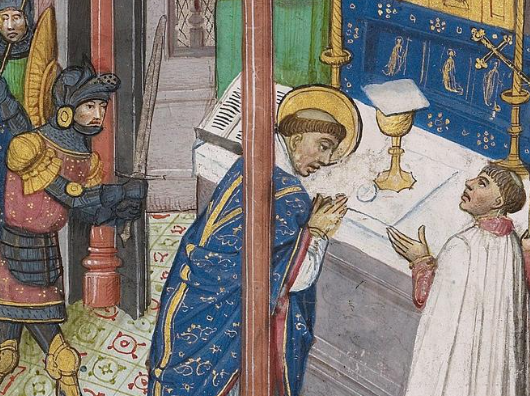How Saint Thomas Becket Defended Church Authority
Saint Thomas Becket, the Archbishop of Canterbury in the 12th century, is a significant figure in the history of the Church and its relationship with secular power. Understanding how Becket defended church authority sheds light on the ongoing struggle between religious and governmental institutions, a theme still relevant today. His life and legacy reveal the complexities of loyalty, power, and belief, making it an essential topic for anyone interested in history or religious studies.
The Conflict with King Henry II
One of the most notable aspects of Becket’s defense of church authority was his conflict with King Henry II. Initially, Becket was a close friend and supporter of the king. However, as he embraced his role as Archbishop, he began to prioritize the Church’s independence. This led to tensions over issues such as the rights of the clergy and the authority of church courts. When Henry sought to extend the monarchy’s power over church matters, Becket stood firm, advocating for the Church’s autonomy. His steadfast resistance ultimately escalated into a bitter feud that would define his legacy.
The Murder and Martyrdom
Becket’s ultimate sacrifice came on December 29, 1170, when he was murdered by followers of King Henry II. His assassination became a powerful symbol of the Church’s struggle for authority. It heightened public awareness of the conflict between church and state, igniting a wave of sympathy for Becket and his cause. Shortly after his death, the Church canonized him, marking him as a martyr and a defender of ecclesiastical rights. This event not only strengthened the Church’s position but also established Becket as a martyr whose story would resonate for generations.
Influence on Church-State Relations
The legacy of Thomas Becket continues to influence church-state relations. His unwavering commitment to church authority helped solidify the idea that spiritual leaders should have the right to operate independently of secular interests. The public’s reaction to his martyrdom led to significant changes in how kings and queens approached their relationship with the Church. Over time, this ultimately paved the way for further clarifications in the power dynamics between ecclesiastical and secular authorities, a conversation that continues to this day.
In conclusion, Saint Thomas Becket’s defense of church authority showcases the enduring battle between religious and political power. His dedication to upholding the Church’s rights, highlighted by his conflict with King Henry II and his martyrdom, left a lasting impact on history. To explore more about Becket’s life and the ongoing interplay between church and state, consider delving into historical texts or visiting sites dedicated to his memory. Understanding these themes enriches our perspective on contemporary issues of authority and governance.

